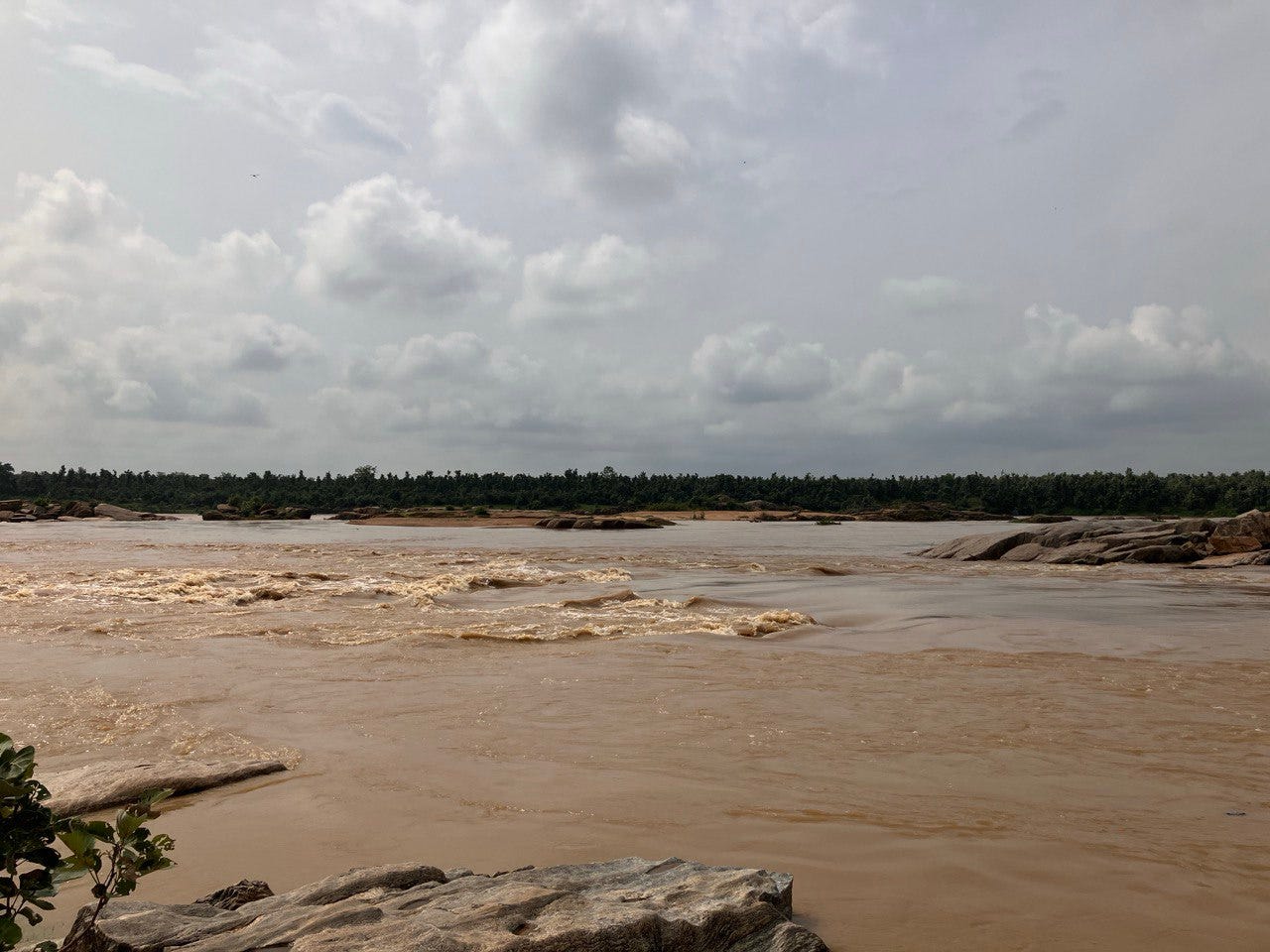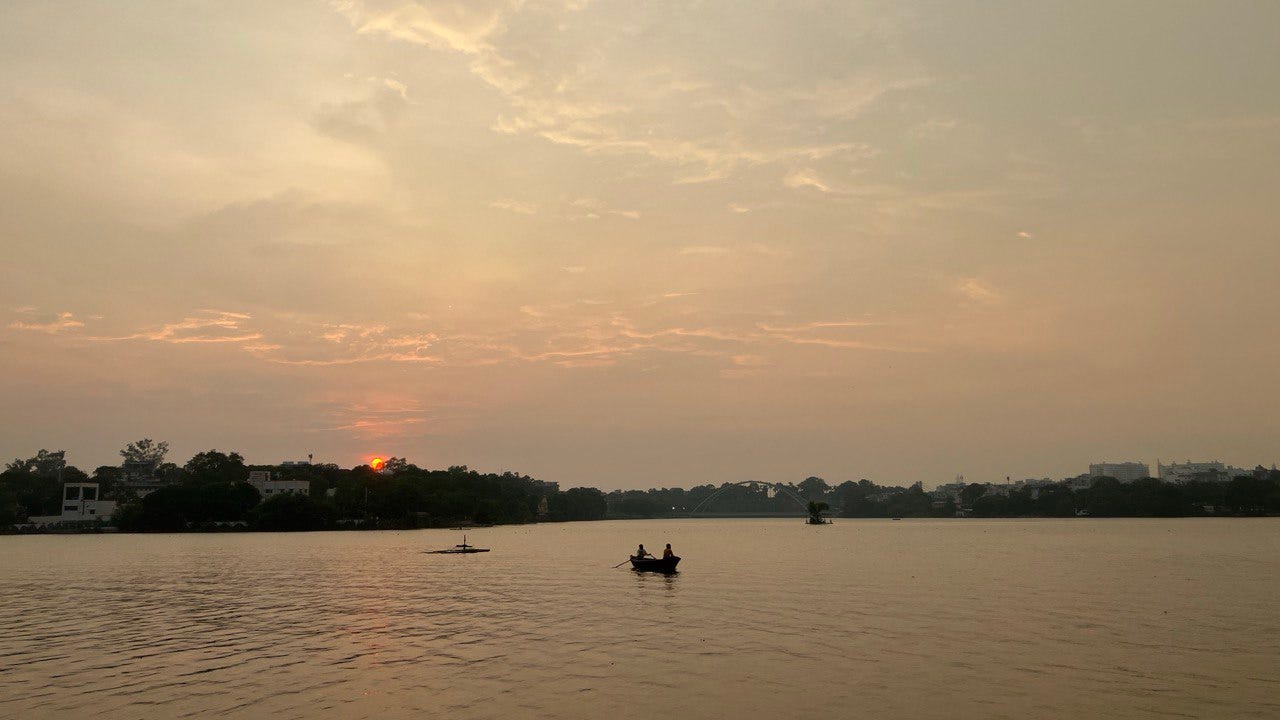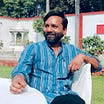Lunchbox
I shared my lunch box with a river. My entire childhood is made of the cool, sweet water of that river, writes Vimal Chitra
After my parents separated, I used to live with my father. Often he would give me lunch money which I spent on snacks and other atram-chatram. Most children brought their own tiffins and shared them. We would call it aanta-baanta. During the lunch break I would roam around the nearby shops or sit by myself. Sometimes I ate, but sometimes I didn’t have anything.
A river flowed near our home. My father loved swimming in it, so much so that at times he asked me to skip school and accompany him to the river. Every 2-3 days, we would go to the river. We would cook rice and dal, and carry it in the same utensils tied in a cloth bundle and set off. It was a five minute walk.
My father had a few favourite spots, secluded from the rest and that’s where we would settle. He swam for long hours, at times just floating on his back.
I watched fish and crabs, observing how their little ones swam differently from the grown ups. I’d catch and release them. I looked at kingfishers and other birds. I’d sift through the colourful pebbles smoothed by the river. I would pick out the biggest piece of mica from the sand and hold it up against the sun, feeling the sharp gleam in my eye.
I would dig insects from the sand and lift them on to my palm, giggling as they tickled me. When my laughter echoed, I dropped the insects and shouted across the river, waiting for my voice to return. I made toys out of water plants and played with them; the sound of toys reflecting off the water made a wondrous vibration. For hours, I paddled from deep to shallow waters and back again. Then, like a rock, I lay still with the rocks, losing myself.
When we were done swimming, we would open our bundle, and mixed rice with dal and baingan ki subzi for our meal. We ate in deep silence, enveloped by the breeze. Nothing can compare to the experience of a meal eaten by a river, surrounded by the coolness in the air. My father would fling leftover baingan peels into the river and swarms of tiny fish would rise to the surface. Imitating my father, I began doing the same, setting aside a generous portion of the meal for the fish. This became my favourite pastime while eating. Afterwards, we would drink straight from the river, its perfect sweet and cool water. My entire childhood is made of this cool, sweet water.
As I wandered from city to city, tasting different waters, each sip reminded me of this river. It would make me laugh. I felt sorry that people in these cities had never tasted the river. In that moment I also felt proud. I felt that the water of a river flows in my veins. God knows how many streams had brought that water to me, I still feel its freshness in my soul. I owe this debt to the river. The water of the river merged with countless other rivers. Therefore I’m indebted to all of them and shall remain so forever. I feel proud for being in such a debt.
I no longer live in that village. The river too has dried up. Yet my love for it remains. It gave me so much love. The sand on its shore was my aangan. There was a time when my day would start only after visiting the river. Sometimes I would go there all by myself in the middle of the day. I would sit on the sand and eat chiwda. Drink water from the river. Lie amongst the rocks.
The sand, trees, and birds recognized me. The young ones had grown up by now. I had grown with them. Despite the loneliness of my life, I never felt alone there. I always knew that the river was with me. Someone with whom I could sit and do aanta-baanta.
*******
Translated from Hindi by
Listen to this essay in Vimal Chitra’s authentic and evocative voice:
URDU se DOSTI, a beginner's workshop facilitated by Vimal Chitra
Urdu is a language of love, history, and poetry. Discover the jaadu of Urdu with poet, screenwriter and spoken word artist, Vimal Chitra in our 2 day workshop, Urdu Se Dosti








